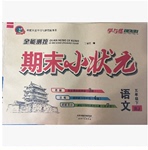题目内容
—If William _______, he _______that green peach.
—Luckily he was sent to the hospital in time.
A. was warned; would not take B. had been warned; would not have taken
C. would be warned; had not taken D. would have been warned; had not taken
B

 全能测控期末小状元系列答案
全能测控期末小状元系列答案
| |||||||||||||||||||||||||||||||||||||||||||||||||||||||||||||||||||||||||
| |||||||||||||||||||||||||||||||||||||||||||||||||||||||||||||||||||||||||
—If William _______, he _______that green peach.
—Luckily he was sent to the hospital in time.
| A.was warned; would not take | B.had been warned; would not have taken |
| C.would be warned; had not taken | D.would have been warned; had not taken |

